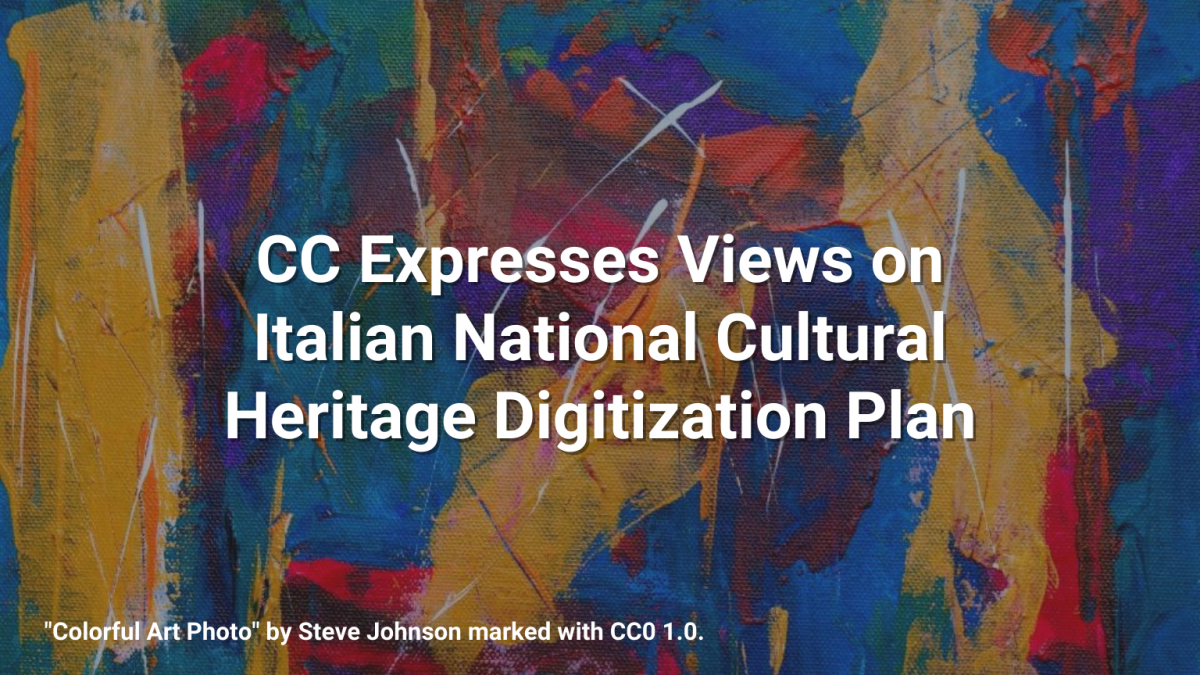Read the Global Open Policy Report
Open Policy is when governments, institutions, and non-profits enact policies and legislation that makes content, knowledge, or data they produce or fund available under a permissive license to allow reuse, revision, remix, retention, and redistribution. This promotes innovation, access, and equity in areas of education, data, software, heritage, cultural content, science, and academia.
For several years, Creative Commons has been tracking the spread of open policies around the world. And now, with the newGlobal Open Policy Report(PDF)by theOpen Policy Network, we’re able to provide a systematic overview of open policy development.
 这份史无前例的报告概述了38个国家的开放政策,涉及四个领域:教育、科学、数据和遗产。该报告包括开放政策指数、非洲、中东、亚洲、澳大利亚、拉丁美洲、欧洲和北美的区域影响和当地案例研究。该指数从政策力度和范围、政策执行水平两个维度衡量开放政策强度。该索引是由CC Japan的合作组织CommonSphere的研究人员开发的。
这份史无前例的报告概述了38个国家的开放政策,涉及四个领域:教育、科学、数据和遗产。该报告包括开放政策指数、非洲、中东、亚洲、澳大利亚、拉丁美洲、欧洲和北美的区域影响和当地案例研究。该指数从政策力度和范围、政策执行水平两个维度衡量开放政策强度。该索引是由CC Japan的合作组织CommonSphere的研究人员开发的。
The Open Policy Index scores were used to classify countries as either Leading, Mid-Way, or Delayed in open policy development. The ten countries with the highest scores are Argentina, Bolivia, Chile, France, Kyrgyzstan, New Zealand, Poland, South Korea, Tanzania, and Uruguay.
The Index scores show that open data policies are the most common, while the rarest open policies are in the heritage sector. Our data also shows a clear correlation between the scope of policy and the level of its implementation. “The Open Policy Index is the first measurement tool that aims at cross-sector comparison of policies, at global scale. The 2016 edition is a prototype which we will be developing further in coming years. We would like to double the number of indexed countries to cover all those in which Creative Commons is active,” says CC Poland’s Alek Tarkowski, one of the leaders of the project.
In his introduction, Creative Commons Public Policy Lead Timothy Vollmer calls us to action, saying that with open policies we have the opportunity, the infrastructure, and the ability to “improve educational opportunities and help solve some of the world’s toughest scientific challenges.”
This report documents global achievements from teams all over the world. Each section was written by experts in open policy in their region. Kelsey Wiens, Project Manager for the Global Open Policy Report, emphasizes the importance of communities and open policy: “We need to leverage effective open policies with vibrant, active communities to embrace, embed, and enhance policies in addition to written statements. Without communities like Creative Commons and OPN, policies are simply paper, not actions.”
Our partners in collaboration are:
Carolina Botero – Karisma Foundation (Colombia)
María Juliana Soto – Karisma Foundation (Colombia)
Laura Mora – Karisma Foundation (Colombia)
Tomohiro Nagashima – CommonSphere (Japan)
Tomoaki Watanabe – CommonSphere (Japan)
Alek Tarkowski – Centrum Cyfrowe (Poland)
Kelsey Wiens – Currently CC Canada, formerly CC South Africa (Canada)
Nicole Allen – SPARC (United States)
Delia Browne – Australia National Copyright Unit (Australia)
Baden M Appleyard – AusGOAL (Australia)
Jessica Smith – Australia National Copyright Unit (Australia)
Nancy Salem – Access to Knowledge for Development Center (Egypt)
Editor: Isla Haddow-Flood (South Africa)
Graphics: Atramento.pl (Poland)
Survey Partner: CommonSphere (Japan)
We would not have been successful without the participation and support of the Creative Commons Affiliate Network. We give thanks to all who participated in the survey, interviewed for the case studies or provided research support.
该项目是开放政策网络赠款的一部分,由休利特基金会和知识共享支持的开放政策网络慷慨捐赠。卡塔尔vs葡萄牙分析




